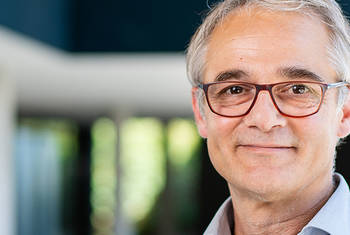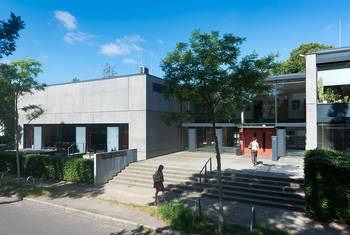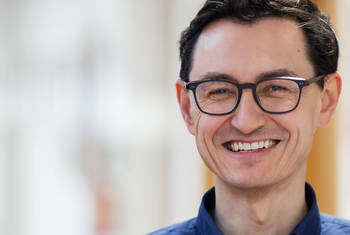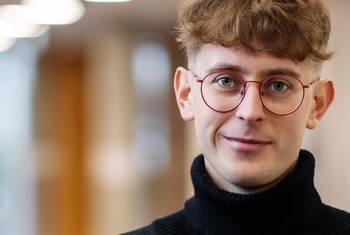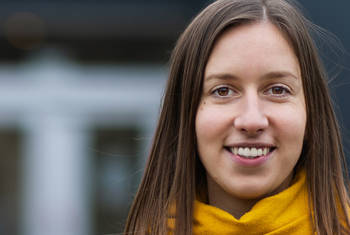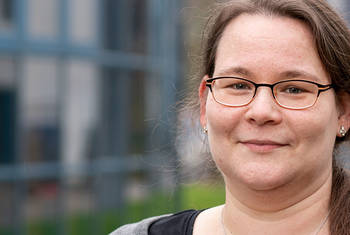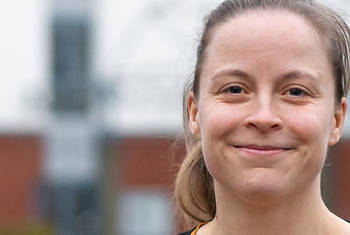Matteo Valleriani How Does the Homogenization of Scientific Knowledge Occur?
Matteo Valleriani is Research Group Leader at the Max Planck Institute for the History of Science. He is also Honorary Professor of the History of Science at Technische Universität Berlin and Professor for Special Appointments in the Humanities at Tel Aviv University. His main research foci are on the emergence and the homogenization of scientific knowledge and current research projects include work on Leonardo da Vinci, Agora Infrastructure and BIFLOD-BZML (which is grounded in developing fields of machine learning and artificial intelligence). The organizer of several noted exhibitions and a frequent expert contributor to TV and radio discussions, Valleriani was awarded the Paul Bunge Prize (Hans Jenemann Stiftung. Gesellschaft Deutscher Chemiker) in 2011 and the Marc-Auguste Pictet Prize (Société de Physique et d'Histoire Naturelle of Geneva) in 2010.
Area of Research
History
since 2012
Research Group Leader (W2)
Max Planck Society
Max Planck Institute for the History of Science
Institute
Max Planck Institute for the History of Science
Founded in 1994, the Max Planck Institute for the History of Science (MPIWG) in Berlin is one of more than 80 research institutes administered by the Max Planck Society. The Institute is dedicated to the study of the history of science, aiming to understand scientific thinking and practice as historical phenomena from a variety of methodological and interdisciplinary perspectives. Our research draws on the reflective potential of the history of science to address current challenges in scientific scholarship, exploring the changing meaning of fundamental scientific concepts as well as how cultural developments shape scientific practices. The Institute’s projects span all eras of human history and a multitude of cultures globally, ranging from the origins of continuity systems in Mesopotamia to present-day science in China, Renaissance natural history, and the past of quantum mechanics. The Institute also draws on the reflective potential of the history of science to address current challenges in scientific scholarship.
Map
A student of mathematics at university is likely to encounter very similar material in the early years whether they enroll in Berlin, Beijing or Boston. In this video, MATTEO VALLERIANI asks how this homogenization of scientific knowledge occurs. Looking at various aspects of mathematical study at universities between the 12th and 17th centuries, Valleriani’s work combines history, philosophy and computer science in the frame of an emerging discipline known as computational history. Among his most interesting findings is the fact that the 16th century Reformation lead to a significant homogenization of scientific knowledge. Classically associated with fragmentation in various spheres (most obviously, the church), imitation of the innovative thought coming out of Wittenberg is shown to represent a key step in the homogenization of European scientific knowledge.
LT Video Publication DOI: https://doi.org/10.21036/LTPUB101041
An Ever-Expanding Humanities Knowledge Graph: The Sphaera Corpus at the Intersection of Humanities, Data Management, and Machine Learning
- Hassan El-Hajj, Maryam Zamani, Jochen Büttner, Julius Martinetz, Oliver Eberle, Noga Shlomi, Anna Siebold, Grégoire Montavon, Klaus-Robert Müller, Holger Kantz and Matteo Valleriani
- Datenbank-Spektrum
- Published in 2022
The Hidden Praeceptor: How Georg Rheticus Taught Geocentric Cosmology to Europe
- Matteo Valleriani, Beate Federau and Olga Nicolaeva
- Perspectives in Science
- Published in 2022
Publishing Sacrobosco’s «De sphaera» in Early Modern Europe. Modes of Material and Scientific Exchange
- Published in 2022
De sphaera of Johannes de Sacrobosco in the Early Modern Period: The Authors of the Commentaries
- Published in 2020
Evolution and Transformation of Early Modern Cosmological Knowledge: A Network Study
- Maryam Zamani, Alejandro Tejedor, Malte Vogl, Florian Kräutli, Matteo Valleriani and Holger Kantz
- Scientific Reports - Nature
- Published in 2020
The Emergence of Epistemic Communities in the Sphaera Corpus: Mechanisms of Knowledge Evolution
- Matteo Valleriani, Florian Kräutli, Maryam Zamani, Alejandro Tejedor, Christoph Sander, Malte Vogl, Sabine Bertram, Gesa Funke and Holger Kantz
- Journal of Historical Network Research
- Published in 2019




